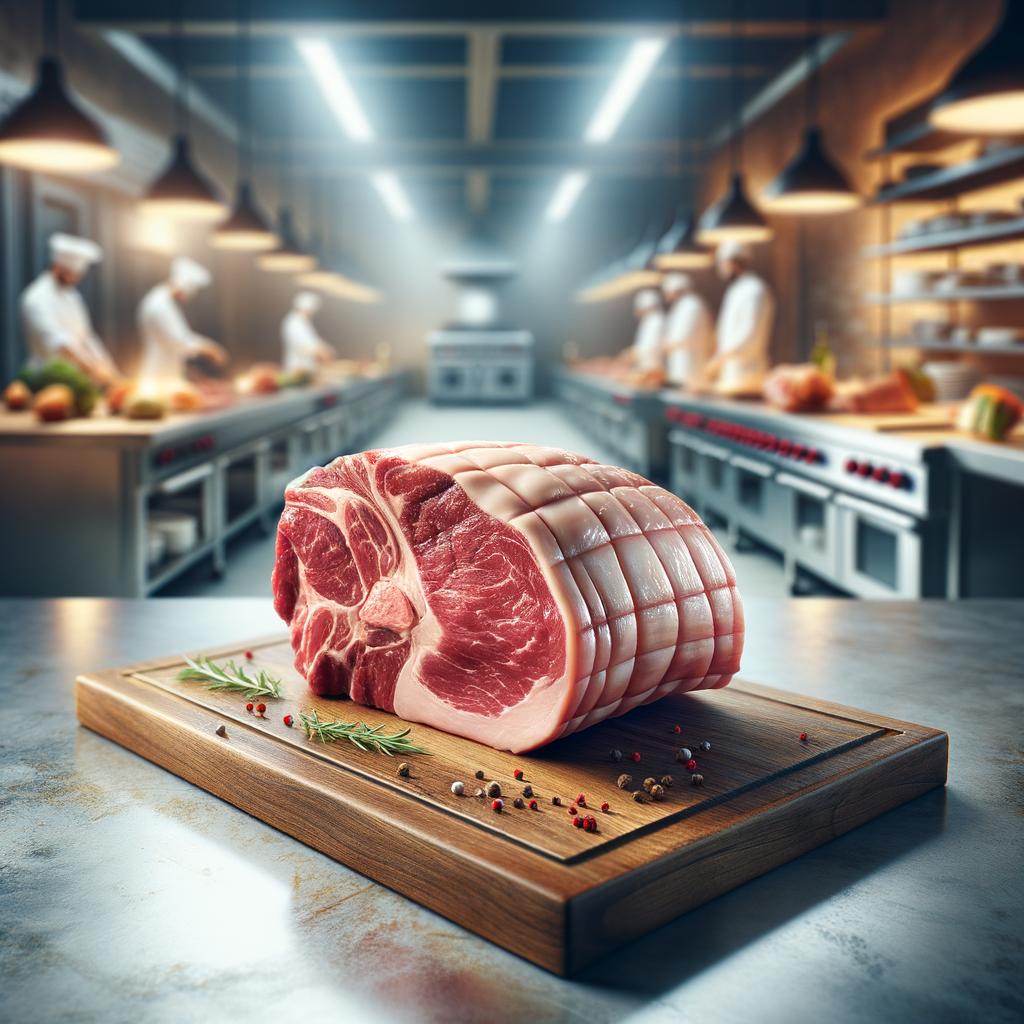Veal Shoulder

Description Veal shoulder, a tender and succulent cut of meat, is often praised for its delicate, slightly sweet flavor and its fine-grained texture. This cut of meat is harvested from the young calves, typically milk-fed, which gives it a distinctively light, almost creamy color, unlike the darker hues of beef. The veal shoulder is exceptionally tender, a characteristic that sets it apart from other cuts of meat. Its subtle flavor profile makes it a versatile ingredient that can be adapted to a wide range of dishes.
Primary Uses Veal shoulder is a highly sought-after ingredient in many cuisines, particularly in French and Italian cooking. It is often slow-cooked in stews, braised with aromatic herbs and vegetables, or roasted to bring out its inherent sweetness. In Italy, the veal shoulder is a key component in the traditional dish "Ossobuco", where it is braised with vegetables, white wine, and broth. The veal shoulder is also commonly used in making ground meat for dishes like meatballs or meatloaf due to its lean yet flavorful profile. Beyond its culinary uses, veal shoulder holds a significant place in cultural celebrations in many European countries, often served at feasts and family gatherings.
History The history of veal shoulder is intertwined with the pastoral traditions of Europe, particularly in regions where dairy farming was prevalent. As early as the Roman times, veal was considered a delicacy, often served at grand feasts and celebrations. The use of veal shoulder in dishes like "Ossobuco" dates back to the 19th century in Milan, a testament to its longstanding popularity. Over time, the appreciation for veal shoulder has spread across the globe, with chefs and home cooks alike valuing it for its tender texture and unique flavor. Folklore often associates veal with prosperity and abundance, and in some cultures, serving veal at a gathering is seen as a sign of hospitality and generosity.
Nutritional Information Veal shoulder is a nutritionally rich ingredient, offering a host of vitamins and minerals. It is an excellent source of protein, providing all the essential amino acids. It also contains significant amounts of vitamins B12 and B6, which are crucial for brain health and energy production. Additionally, veal shoulder is rich in zinc, a mineral known for its role in immune function and wound healing. Compared to beef, veal shoulder is leaner and lower in calories, making it a healthier choice for those monitoring their calorie intake. However, like all meats, it should be consumed in moderation as part of a balanced diet to maintain optimal health.

